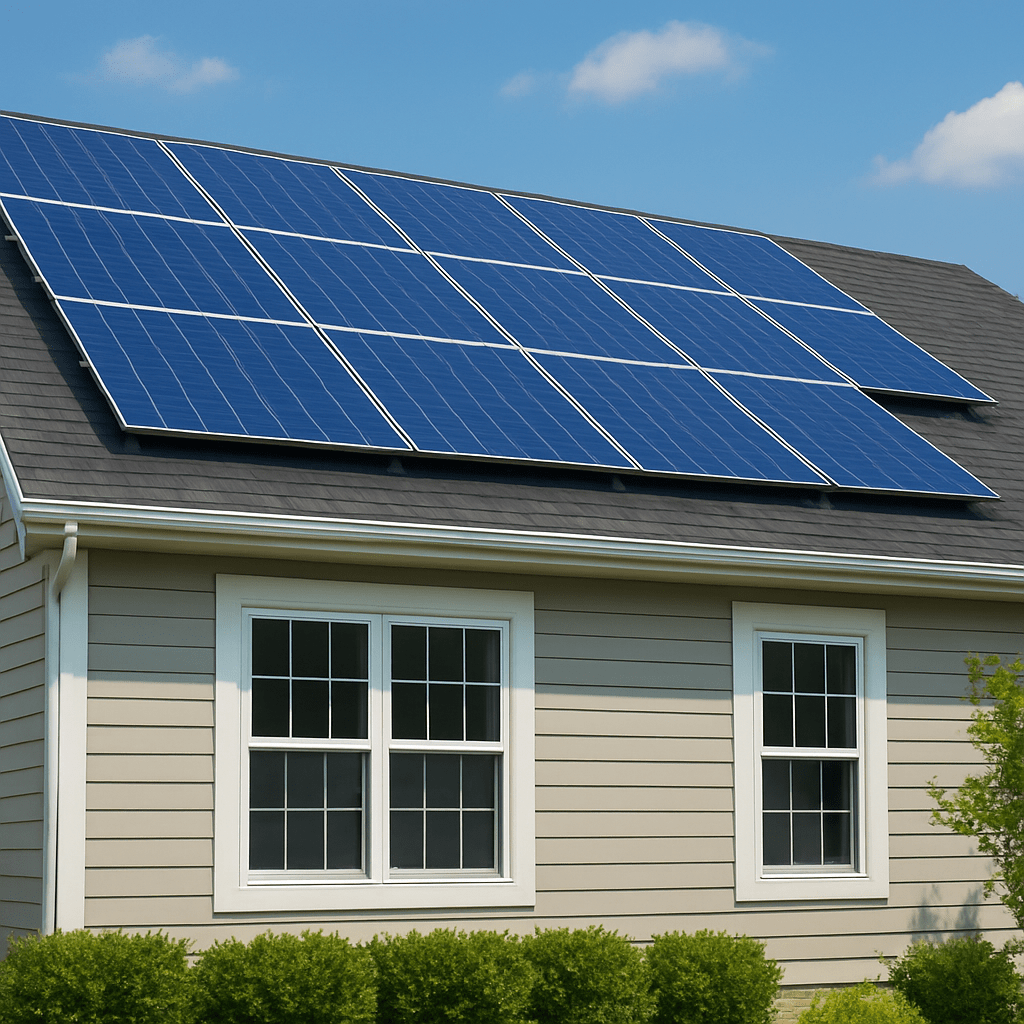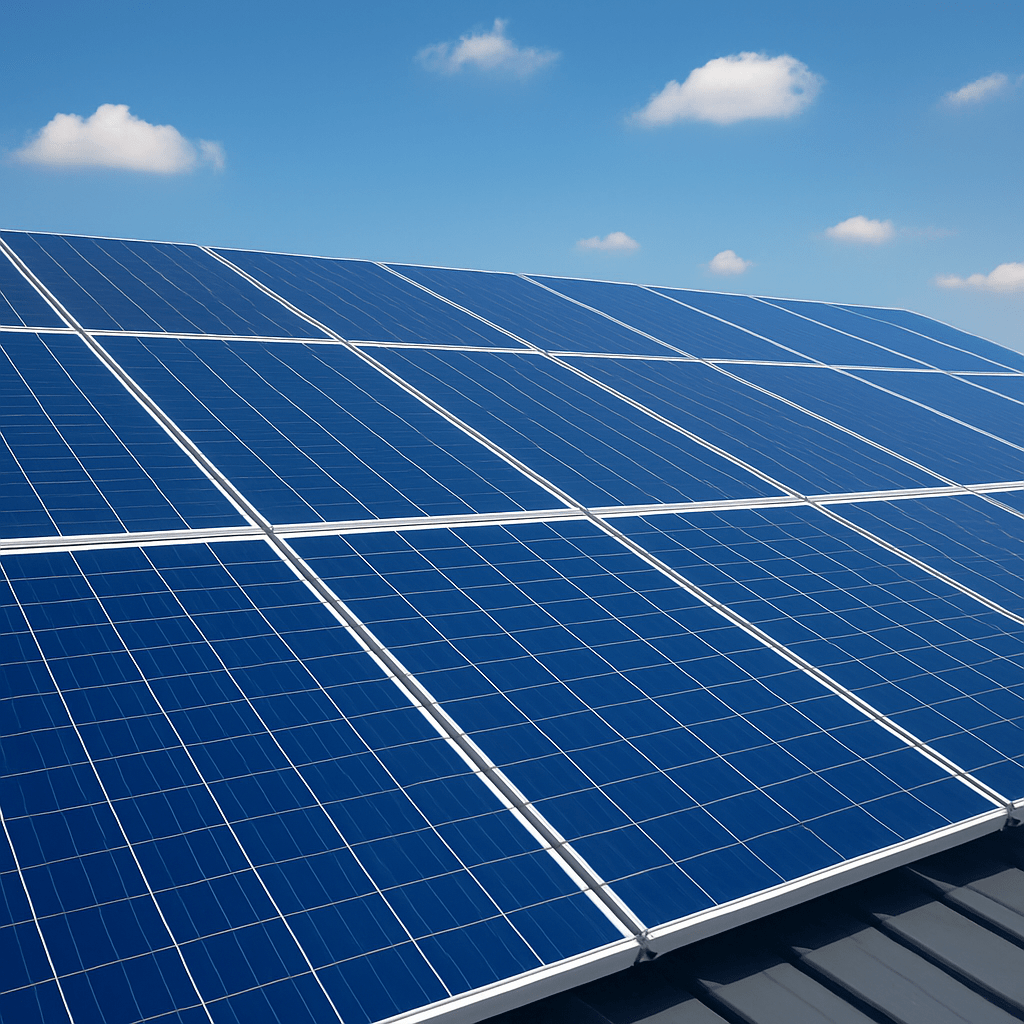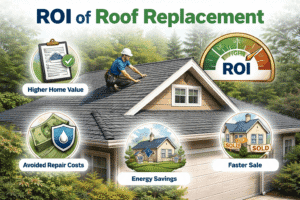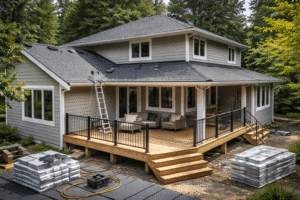As energy costs rise and environmental concerns grow, many homeowners are asking: Are solar panels worth it? The answer depends on your home, roof, budget, and long-term plans. While solar energy offers impressive benefits—like lower electric bills, increased home value, and reduced carbon emissions—it’s not the perfect fit for everyone.
In this article, we’ll break down the pros and cons of solar panels, help you evaluate whether your home is a good candidate, and explain how to maximize your investment—especially before the 30% federal solar tax credit expires in 2026.
The Benefits of Solar Panels
Lower Monthly Energy Bills
Once your solar system is installed, it generates electricity for your home—meaning less reliance on your utility provider and lower monthly bills. Over a 25- to 30-year lifespan, homeowners can save $31,000 to $120,000, depending on location and usage.
Increases Home Value
A solar panel system can boost your home’s resale value by about 4%. Buyers love homes with energy-efficient features, and many will pay a premium for panels already installed.
Reduces Your Carbon Footprint
Solar power is clean, renewable, and emissions-free. By switching to solar, you reduce your dependence on fossil fuels and contribute to a more sustainable future.
Protection Against Energy Inflation
Utility rates are only going up. By locking in your electricity source, you insulate yourself from unpredictable price hikes and can enjoy long-term stability.
Minimal Maintenance
Most solar systems have no moving parts and require little upkeep. Occasional cleaning and routine inspections are usually all that’s needed.
The Drawbacks of Solar Panels
Not All Roofs Are Suitable
Ideal roofs face south and have slopes between 15°–40°. If your roof faces north or has unusual features (like heavy shade, roof decks, or slate/cedar tiles), your solar efficiency may drop.
You May Not Break Even If You Move Soon
Solar is a long-term investment, with an average payback period of 7 years. If you’re planning to sell your home in the next 2–3 years, the savings may not outweigh the upfront costs.
High Upfront Costs (Without Financing)
While many installers offer zero-down financing, not everyone qualifies. Without incentives or financing, solar panels can cost between $15,000 to $25,000+.
Not Ideal in Low-Cost Electricity States
If your current electricity rates are already low, your monthly savings with solar will also be smaller. This affects how quickly you recover your initial investment.
Disposal and Toxic Materials
Some panels contain trace amounts of toxic metals like lead or cadmium. Although safely encapsulated, these materials require proper disposal after 25–30 years.

Incentives That Make Solar More Affordable
One of the biggest financial benefits of solar right now is the 30% Federal Solar Investment Tax Credit (ITC)—but it’s set to expire in January 2026. This incentive allows homeowners to recoup nearly one-third of their system cost through tax savings.
Depending on your state, you may also qualify for:
- State tax rebates
- Utility credits through net metering
- Performance-based incentives (PBIs)
- Solar Renewable Energy Certificates (SRECs)
Should You Go Solar? Key Questions to Ask
- Do you plan to stay in your home for the next 7+ years?
- Is your roof in good condition and properly oriented?
- Are your monthly electricity bills relatively high?
- Do you have access to solar-friendly financing or incentives?
If the answer to most of these is yes, solar is likely a smart investment for your home.
Considering a New Roof? Think Solar‑Ready
If you’re planning a roof replacement soon, it’s the perfect time to think about solar. Installing both systems together can save on labor and extend the life of both.
Final Thoughts: Are Solar Panels Worth It?
Solar panels offer a mix of financial, environmental, and practical benefits. While they’re not ideal for every home, most homeowners with suitable roofs and long-term plans will see major returns—especially when combined with federal and state incentives.
FAQ: Pros and Cons of Solar Panels

How much do solar panels cost?
Costs vary by system size, location, and incentives, but most homeowners pay $15,000–$25,000 before incentives. With tax credits, your net cost can be 30% lower.
What’s the lifespan of a solar panel system?
Most panels last 25–30 years, and many come with warranties that guarantee performance during that time.
Can I go solar if my roof isn’t a good fit?
Yes. Ground-mounted solar panels or community solar subscriptions are alternatives for homeowners with shaded or north-facing roofs.
Is solar still worth it if I have low electric bills?
Maybe not. If your monthly energy costs are very low, your payback period will be longer, which could make other home upgrades more cost-effective.


